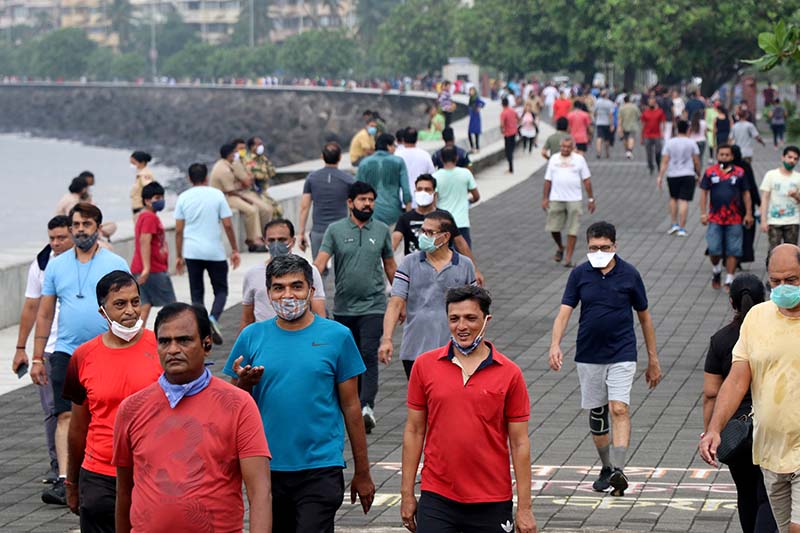Worldwide coronavirus cases cross 31.21 million, death toll over 962,500
At least 31,211,095 people have been reported to be infected by the novel coronavirus globally and 962,705 people have died, a Reuters tally showed.
Infections have been reported in more than 210 countries and territories since the first cases were identified in China in December 2019.
The World Health Organization referred to the outbreak as a pandemic on March 11.
The US death toll from COVID-19 approached 200,000, by far the highest number of any nation, while Mexico surpassed 700,000 confirmed cases even as health authorities cited what they described as nearly two months of slowing infection rates.
DEATHS AND INFECTIONS
At least 6,866,308 cases of the highly contagious novel coronavirus have been reported in the United States and its territories while at least 199,924 people have died, according to a Reuters tally of state and local government sources as of September 22, 2020, 8:57 am. The US diagnosed its first COVID-19 case in Washington state on January 20.
Likewise, India follows the US with a total of 5,487,580 coronavirus cases with 87,882 death, according to Reuters’ interactive graphic tracking the global spread.
Likewise, Brazil has the third-highest 4,558,068 coronavirus cases while 137,272 people have died.
ASIA-PACIFIC
— India reopened the Taj Mahal after six months, with the first visitors trickling into the famous monument as authorities reported 86,961 new infections across the country, with no signs of a peak yet.
— South Korea suspended free flu shots, disrupting plans to pre-emptively ease the burden on a healthcare system already strained by the coronavirus outbreak.
— Australia's virus hotspot of Victoria reported a more than doubling in new infections, likely as a result of increased testing, while other states said border restrictions would be relaxed as case numbers dwindled.
EUROPE
— All pubs, bars, restaurants and other hospitality venues across the whole of England must start closing at 10 p.m. from Thursday as Prime Minister Boris Johnson tackles a second wave of infections.
— Madrid's regional government chief requested the army's help to fight the coronavirus surge in the Spanish capital.
— Greece reported 453 new cases of COVID-19 infections, a new daily record since the start of the outbreak in the country.
AMERICAS
— The US Centers for Disease Control and Prevention took down its guidance warning on possible airborne transmission of the novel coronavirus, saying that the draft recommendation was posted in error.
— Optimism that vaccines are on the way to end the pandemic has been a major factor in this year's US stock resurgence. That will face a critical test in coming weeks, as investors await clinical data on whether they actually work.
MIDDLE EAST AND AFRICA
— Nigerian health workers who went on strike in mid-September for a hazard allowance for treating coronavirus patients returned to work, their union said, without their demands being met.
— Iraq is to bar entry to religious pilgrims, its government health committee said, just weeks ahead of a Shi'ite Muslim pilgrimage which is the largest annual religious gathering in the world.
MEDICAL DEVELOPMENTS
— Some 156 nations have joined a global scheme for fair distribution of future vaccines against COVID-19, an alliance led by the World Health Organization (WHO) said, but superpowers China and the United States did not sign up.
ECONOMIC IMPACT
— The Federal Reserve remains committed to using all the tools at its disposal to help the US economy recover from the blow delivered by the pandemic, Chairman Jerome Powell said.
— The pandemic will darken the US long-term fiscal outlook for decades to come, the Congressional Budget Office said, releasing new forecasts that show federal government debt in 2050 will be nearly twice US economic output.






